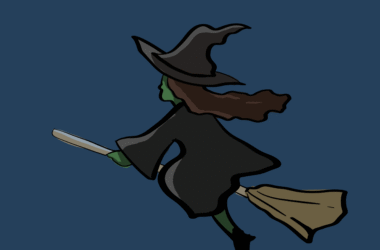 Sam Reynolds / McGill Tribune
Sam Reynolds / McGill TribuneMy mother, like many, used to stress the importance of good manners. But what happens when yours has none to spare? Well, something like Hay Fever, apparently. Set in the bohemian period of the roaring twenties, the play follows the eccentricities of the Bliss family as they drive their guests and each other to the edge of insanity—and then over it. In the hands of Players’ Theatre, the script is as zany as ever and cringingly sharp. No worries about indecent pleasures; here, the pleasure is in the indecency.
Looking at the set, a country home immaculately decked to bourgeois tastes, one would never intitally guess the bizarre nature of the Bliss family. This, of course, is soon remedied. Siblings Sorel and Simon Bliss are nothing less than spoiled brats with issues of temperament. Played respectively by Alex Borkowski and Spencer Thompson, the pair’s initial banter eased the audience into the oddities of the upper-class. Borkowski managed to find pleasing dimensions in her role, including the semblance of a restraint that few others in the cast adopted. Thompson largely hit a single tone, although one that is uproarious.
The two appear to regard housemaid Clara (Norah Paton) as just one of the furnishings, despite Paton’s bird-like posturing having given the character plenty of quirk of her own. She was certainly not missed by the audience, who seemed to find delight in all of her cameos.
Soon waltzes in retired actress and boisterous matriarch Judith Bliss (Annie Schreck) who wastes no time in attempting to outdo her two children in outlandishness. Schreck fit the role well, although occasionally stretched the character too far. Her husband, David Bliss (Andrew Cameron), is no less strange, having apparently shirked all parental and spousal responsibility.
Before long, it is revealed that each of the members of the house have invited a guest for the weekend without telling the others. Of course, instead of attempting to resolve any of the problems that this miscommunication may cause, the Blisses carry on, leaving their unsuspecting invitees to brave the chaotic frenzy that ensues.
Director Zoë Erwin-Longstaff seems to have found an inscrutable internal calculus to the show; the fluidity and acuity of the pacing makes Hay Fever a peculiar exercise in functional dysfunctionality. The frenzy of one-liners are relayed more often by caricatures than by characters. Should the audience ever get the chance for a breath and some introspection, they’d see that much of the show has been over-acted. I don’t believe this chance ever really comes. The force of the pacing negated the force of logic.
The velocity of the show also meant that actors were not (could not?) hold for laughs, which was a shame, as the Noël Coward script is very funny, and has some remarkable turns of language. Other bits of comic gold were left unmined when an actor simply rushed on over it. This also meant that the occasional tone shift made for a bewildering experience, while the rest was cardiovascularly-taxing.
That said, the locomotive force of the production allowed for absolutely zero dull moments. The comic lines that the cast do hit are hit exceedingly well. Darcy Drury gave the most disciplined performance as Sandy, with his presence an anchor of sanity in most scenes. Costuming under Logan Williams was very appropriate, and showed considerable care and thought.
Altogether, Players’ Theatre’s Hay Fever is not your typical show. Few productions could pull off such absurd levels of energy so successfully. An abundance of laughs is practically guaranteed, but be sure to bring your own defibrillator.
Players’ Theatre’s production of Hay Fever runs from Jan 25 – 28 on the third floor SSMU building at 8 p.m.






